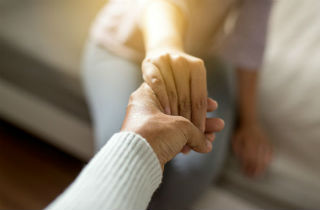“You are who you surround yourself with.”
Having a core group of friends in your first year of sobriety is extremely important. It can make or break your sobriety…believe it, or not.
So, how can you maintain your sobriety while steering old and new friendships? Which relationships can bring you good and which ones can jeopardize all that you’ve worked for? There are several “safety tips” that you can adopt to avoid risky friendships. Continue reading to learn more, and join us with your questions in the comments section at the end. We welcome your feedback. In fact, we try to respond personally and promptly to all legitimate inquiries.
The best advice I ever got about relationships
The best advice I have ever gotten in addiction recovery was this:
”Go to 12 Step meetings with people less than a year sober, and go on casual outings with people who have more than a year sober.”
This way, if you are going to meetings with friends who are still early in their sobriety, and they have a craving, you are way less likely to use with them before, during, or after a meeting. But if you go out with them on a weekend, and someone gets a craving, the chances of relapse go up exponentially. Also, you can learn how people who’ve been in recovery for some time have fun outside of the meetings, where the real challenges begin.
Toxic friendships to avoid in early sobriety
These are some red flags in social situations or in your daily life to look out for that can point you in the right direction. Here are a few examples of situations and types of friends that ARE NOT GOOD FOR YOU, especially in early recovery:
- a feeling of discomfort while being around a person
- dishonest friends or people who use white lies
- highly promiscuous friends, or those who put themselves in risky situations
- friends who break the law
- friends who glamorize using drugs and alcohol
- friends who keep relapsing
- friends in early recovery who aren’t frequenting meetings, seeing their sponsor, or doing step work
- friends who talk down to you, embarrass you, and talk negatively about you behind your back or to your face
- the opposite sex who is attracted to you (starting new relationships is never a good idea early on)
It is important to realize these types of friends who still drink or drug and are not serious about their recovery need help and are still sick. There is nothing you can do for them but separate yourself until they learn on their own from their experiences or from a sponsor.
You do not need to cut these people off completely forever, just until they exhibit more appropriate behavior. This may seem harsh but this is for your own good, and theirs too! You just can’t worry about someone else’s feelings at your own expense.
Friendships you should nurture in early sobriety
On the bright side there are tons of amazing people out there!
Whether you are a nervous, introverted person, or an outgoing social butterfly, you will fit in somewhere. We are all fighting a common battle: addiction. So, don’t be afraid to go up to someone who spoke at a meeting who you look up to. Remember, they were once just as nervous as you are now. People in recovery want to help others, that’s what they are taught helps themselves. So you going up to someone and asking to hang out, is actually doing them a favour, as well.
Also, expect to feel uncomfortable at first. This is normal. You may not feel like you fit in with this new group of friends. Whether you think they are too “healthy” for you, or they are boring, give it TIME. Weren’t you nervous to go to a dealer the first time? But you kept going back because they had something you needed. This is exactly the same thing. Friendship takes work, and it is worth it.
Sober friendships questions
It is common for people who give up alcohol or drug use to give up on many old friendships. Sometimes, old friendships don’t become sober friendships because they are not good for you. If you have a friend who you feel is putting your recovery at risk, talk to your counselor or therapist about what you should do.
If you have any additional questions, feel free to post them in the designated section below. We try to provide a personal and prompt response to all legitimate inquiries. In case we don’t know the answer to your question, we will gladly refer you to professionals who can help.









Related Posts